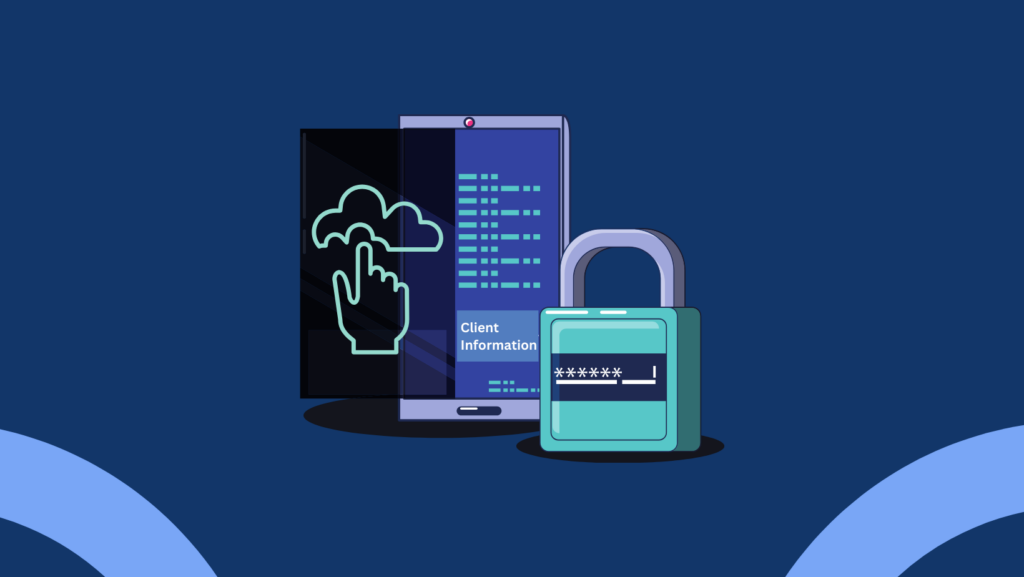Client confidentiality is essential to the legal system. It is the foundation of trust between a lawyer and their client. Without it, clients would be unable to be fully open and honest with their lawyers, which would hinder the lawyer’s ability to provide effective representation.
While most lawyers understand the importance of not intentionally sharing client information with third parties, there are other ways that client confidentiality can be breached, such as through accidental leaks or malicious attacks.
Luckily, there are practices that can be implemented to guard against this happening. In this blog post, we have compiled 5 ways your law firm can prioritize and maintain client confidentiality.
What is Client Confidentiality?
Client confidentiality is the ethical principle that protects the privacy of communications between a client and a professional. It is a fundamental principle in the legal profession, but it also applies to other professions. This means that professionals cannot disclose any information about their clients without their consent. This includes information about the client’s identity, contact information, the nature of the professional’s services, and the client’s communications with the professional.

Client confidentiality is important for a number of reasons. It allows clients to be open and honest with their professionals, which is essential for providing quality services. It also helps to build trust between clients and professionals.
5 Tips For Maintaining Client Confidentiality
Utilize Secure Communication Platforms
Legal technology is becoming increasingly popular in the legal industry, as it can improve efficiency and protect client confidentiality. Today, much of legal communication and file sharing takes place virtually. Legal teams often use messaging services and cloud storage to collaborate on client cases. However, it is important to use secure platforms for these activities, as sensitive client information is at risk.
Law firms should use platforms that are specifically designed for legal professionals. These platforms typically offer ethical features that protect clients information. such as encryption, role-based access control, and audit trails. One example of a secure legal platform is Digitslaw. With Digitslaw, law firms can confidently protect their client confidentiality with features such as:
- Role-based access control: Law firms can control who has access to client data and what they can do with it.
- Audit trails: Digitslaw tracks all activity on client files, so law firms can see who has accessed what information and when.
- Client Portal: A secure client portal where lawyers can efficiently share documents with clients and eliminate the need for multiple email exchanges.
By using a secure legal platform, law firms can help to protect client confidentiality and build trust with their clients.
Implement Stringent Access Controls
This means limiting access to sensitive data to only those employees who need it to perform their job duties. Role-based access control (RBAC) is a system for granting users access to resources based on their roles in the law firm. This means granting access to the specific client information they need to do their jobs, and nothing else.
For example, a legal secretary may need access to client contact information and case files, but they should not need access to financial information or other confidential documents. Similarly, a partner may need access to all client information, but they should not need access to the firm’s accounting system or other administrative systems.
In addition to implementing RBAC, law firms should also regularly review and update access permissions as staff roles evolve within the firm. This will help to ensure that only authorized personnel have access to confidential client information.
Establish a Comprehensive Confidentiality Policy
This is essential for protecting client information and maintaining client trust. Law firms should develop and communicate a clear and concise confidentiality policy to all team members and ensure that everyone understands and adheres to it. The confidentiality policy should outline the law firm’s commitment to protecting client confidentiality and the specific procedures that employees must follow to protect client information. The confidentiality policy should:
- Define what constitutes confidential information, such as client names, contact information, case files, and financial information.
- Specify who has access to confidential information and under what circumstances.
- Outline the specific procedures that employees must follow to protect confidential information, such as using secure communication channels, encrypting sensitive data, and storing confidential information securely.
- Provide guidance on how to report suspected breaches of confidentiality to the firm’s management.
Educate and Train Your Team
Human error is a leading cause of data breaches and other cybersecurity incidents. Educate and train your team on the importance of client confidentiality and the potential consequences of a breach. Your team should be aware of the following:
- The importance of client confidentiality: Clients expect their law firms to protect their confidential information. When clients share confidential information with their lawyers, they are trusting them to keep it safe.
- The potential consequences of a breach: A data breach can have devastating consequences for law firms and their clients. It can lead to financial losses, reputational damage, and even legal liability.
- The law firm confidentiality policies: Law firms should have written confidentiality policies that outline the firm’s expectations and requirements for protecting client information. Your team should be familiar with the firm’s confidentiality policies and follow them carefully.
- The ethical obligations associated with handling client information: Lawyers have a professional obligation to protect client confidentiality. This obligation is enshrined in the ethical rules of conduct that govern the legal profession.

Invest in Cybersecurity Measures
Cybersecurity is paramount for law firms of all sizes. Cyberattacks can be devastating for law firms, leading to data breaches, financial losses, and reputational damage. This is why it’s essential for law firms to invest in robust cybersecurity measures. Here are some key steps that law firms can take to protect themselves from cyberattacks:
- Implement firewalls and intrusion detection systems (IDS). Firewalls act as a barrier between a law firm’s network and the internet, blocking unauthorized access. IDS systems monitor network traffic for suspicious activity and alert law firms to potential attacks.
- Install antivirus software and keep it up to date. Antivirus software can detect and remove malware from law firms’ systems. It’s important to keep antivirus software up to date with the latest virus definitions to ensure that it can protect against new threats.
- Conduct regular system audits. System audits can identify security vulnerabilities in law firms’ systems and networks. Law firms should conduct regular system audits and remediate any vulnerabilities that are found.
- Regularly update software and systems. Software and system updates often include security patches that can help to protect against known vulnerabilities.
Final Thoughts
Prioritizing client confidentiality in your law firm is not just a legal requirement but a fundamental commitment to the trust and integrity that underpins the attorney-client relationship. By following the tips outlined in this article, law firms can help to protect their clients’ confidential information and reduce the risk of data breaches.







